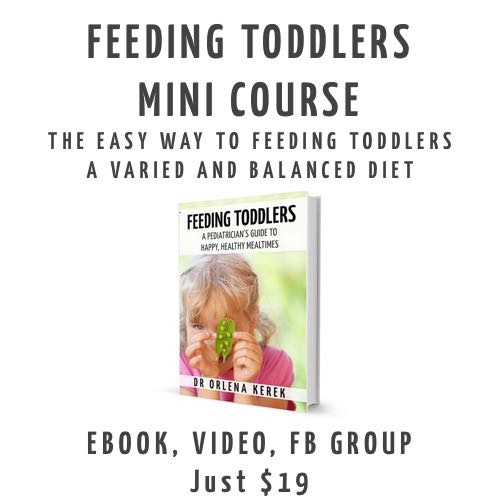Family meal times with toddlers and young children are a great opportunity to teach kids to love vegetables, to model healthy eating habits and to connect with your family. However, all too often, they become times of huge stress for everyone. The kids start screaming and throwing things, the adults in an attempt to calm the situation start shouting. Before you know it, everyone is cross and bothered.
Not a great recipe for enjoying family life and definitely not a great way to teach your kids to love vegetables.
But how do you get back on track?
How Do You Deal with “Naughty” Behaviour at the Dinner Table?
I have a confession to make.
Our mealtimes are often not the calm, peaceful, bonding time that I wish they were. Particularly lunch time.
Here in Spain, the kids all come home from school for lunch. It’s awesome to have family meals in the middle of the day. BUT.
Oh the chaos. The screaming. The yelling. The general meltdown.
The truth is we are all hungry. That’s too mild. I’m so ravenous it feels as if my insides are digesting themselves. I can hardly concentrate on what I’m doing, let alone helping the kids to stay calm and deal with their emotions and problems.
Did I mention I have 4 young kids? It’s obvious that mealtimes are going to noisy. And chaotic. I’d just like them to be a little less noisy and chaotic.
Lunch Time Disaster with Toddlers and PreSchoolers
Here’s how it goes. My husband collects the kids at 12.30. They are so hungry and tired that they can’t even get in the door before they start shouting and screaming, arguing over how to hang up their coats, or worse, lying in the middle of the street hollering and refusing to move.
Today, they managed to get inside without incident. I was trying to serve the food but one of them was fussing about being able to carry the plate herself, another was shrieking about the noise and a third was yelling about… Oh! I can’t even remember what emergency they were having!
My blood pressure was rising and my stomach felt like a wild beast was gouging my insides as I attempted to calm all 4 kids and my husband and get the plates on the table so we can get on with eating.
It felt like an impossible task.
Emotions Can Cause Challenging Mealtime Behaviour
The problem of emotions and “naughty mealtime behaviour” can be seen in many forms during the day.
One reader asked me:
“How can you get a sleepy grumpy toddler to eat a healthy breakfast in the morning?”
Or…
“How do I get my exhausted toddler to eat his dinner? Sometimes he even falls asleep at the table.”
Mealtime Behaviour May Not Be About Food
Often challenging behaviour has absolutely nothing to do with the actual food and whether they want to eat it or not.
There are lots of reasons why your toddler or child may not be behaving in the way that you expect.

Hunger can Cause Bad Mealtime Behaviour
As you can see, if I’m so hungry I can hardly function, chances are the kids are struggling with hunger too. Here are some ideas to help you combat hunger before it reaches danger point.
A healthy eating routine. Regular meals and snack times teach kids when the next “healthy eating opportunity” is going to be.
A healthy snack. If you have a long way to go, how about giving them or yourself a healthy “mini” snack (think fruit or vegetables) when you pick them up. I’ve started sending my husband off with a handful of nuts for himself just before he walks out to collect the kids so that he can deal with their emotions. Or rather so that he can deal with his own hunger, his own emotions and then help the kids with their emotions. A healthy snack for the kids can help combat the “hangry monster” too.
Remember, you don’t want to entirely fill them up, you just want to tide them over.
A healthy starter. Alternatively you could have something waiting on the table when they get home. It can be difficult to have the entire meal waiting but you can have an “entree” that you know they’ll eat. Carrot sticks are my “entree” of choice. Or left overs are easy to pull out of the fridge.
A bigger meal or snack before the problem meal. Our problem meal is lunch time so it makes sense to send the kids to school with a bigger snack. A small amount of fat can help you feel full up for longer. My kids normally take fruit for snack. Nuts are a good addition as they contain healthy unsaturated fats that can help you feel full up for longer. Full fat yoghurt with fruit is another good choice.
Teach manners later. Being super hungry makes everyone grumpy so is now the time to start teaching manners, or are we just going into “survival” mode? Of course being grumpy is no excuse for being rude or breaking your house rules but if in doubt, err on the side of leniency rather than start a fight over how to correctly use cutlery.
Tiredness Can Cause Bad Mealtime Behaviour
Another common cause of challenging behaviour is feeling tired. Remember the “sleepy grumpy toddler” at breakfast time or the “exhausted toddler” at dinner time.
Look at your daily routine. Is it working for you and your kids? If they’re still tired in the morning can you put them to bed earlier? Or can you get them dressed before they eat breakfast. It normally takes my kids half an hour to get dressed by which time we’re all feeling more awake.
What about that exhausted toddler who won’t eat dinner? Can he have his main meal in the middle of the day?
Tiredness affects adults too and you’re much less likely to deal with challenging behaviour in a positive way if you’re suffering from the“tiredness grumps” yourself.
Anger and Emotions Can Cause Bad Mealtime Behaviour
Is your toddler so upset that they have gone into “flip out mode”? When they shout and scream and shout some more and nothing you can do or say will help?
If that’s the case, chances are that their “downstairs brain” is in control. That bit of the brain that triggers your fight or flight response. They have adrenaline coursing around their little body and aren’t going to hear a word you say about how tasty broccoli is if only they’d try it. To them, it’s like being chased by a grissly bear.
There are several ways to calm your child down. They all take emotional effort on your behalf, especially if you’re on the verge of collapse too. One of my favourites is to offer a hug. Of course they won’t always accept it but they do learn to ask for them.
Another way is to help them recognise their emotions. “I see you’re feeling frustrated because you want the cheese on toast cut into squares and it’s in triangles”.
Children are not logical. Their brains do not work the same way as ours. They are much more controlled by emotions than we are. As we often mirror their emotional roller coster it can be really exhausting looking after them. So even when they’re screaming about getting the blue bowl and you give them the blue bowl, the problem still isn’t solved. The emotion is still there regardless of the fact that logically you’ve solved their problem.
Emotions are contagious. Have you noticed how as soon as one child is screaming, the rest of them join in? And you too?
Challenging Behaviour Surrounding the Food
“How do I stop the negotiation about every piece of food?”
Challenging behaviour can also be triggered by the food that is served. When your kids don’t want to eat something and you want them to eat it or even try it, a power struggle ensues.
The easiest and simplest way to stop challenging behaviour that is related to food is to give back all control to your kids.
Let the words “you don’t have to eat it if you don’t like it” resonate through your kitchen.
No more encouraging, no more enticing, no more pressuring your kids to eat food. Not even one tiny little mouthful!
The idea is that you present them with healthy food and they decide what goes into their mouth. Learn to trust your kids and gain the confidence that you need to feed them healthy food in appropriate portions.
How to Combat Challenging Behaviour at Meal Times
- Consider the Cause. Tiredness? Hunger? Anger? What can you do to set up the surroundings so that these overwhelming emotions and feelings aren’t controlling your toddler’s behaviour.
- Clear Expectations. Explaining what you expect from your kids when you aren’t in crisis mode, when everyone is happy and paying attention. “Sweet, when we sit down for meals, I want you to sit with your bottom the chair, to wait quietly until I can serve dinner and to use words when you want to ask for something.” They need to know exactly what is expected of them. Tell them what the “house rules” are. Let them help make them if you like. Remember that they often won’t abide by them. Of course we want our kids to sit at the table for dinner, but toddlers often aren’t capable of doing so. As they get older, they’ll learn to sit for longer.
- Work on Calming Techniques Away from the Table. There are many techniques to learn to combat your own emotions and your toddler’s emotions. Recognise your own triggers and take steps to prevent them overwhelming you so that you can be in a good state of mind to teach your toddler to manage their emotions.
- Don’t Pressure them to eat.
Enjoy Family Meals
Family meals aren’t going to be perfectly peaceful and calm every time. Have realistic expectations and enjoy teaching your kids how to control and manage their emotions so that they can grow into emotionally aware adults who love healthy food.
Pin It For Later


 Feeding Toddlers.
Feeding Toddlers. Would you like your kids to eat more healthily? Check out the book!
Would you like your kids to eat more healthily? Check out the book!